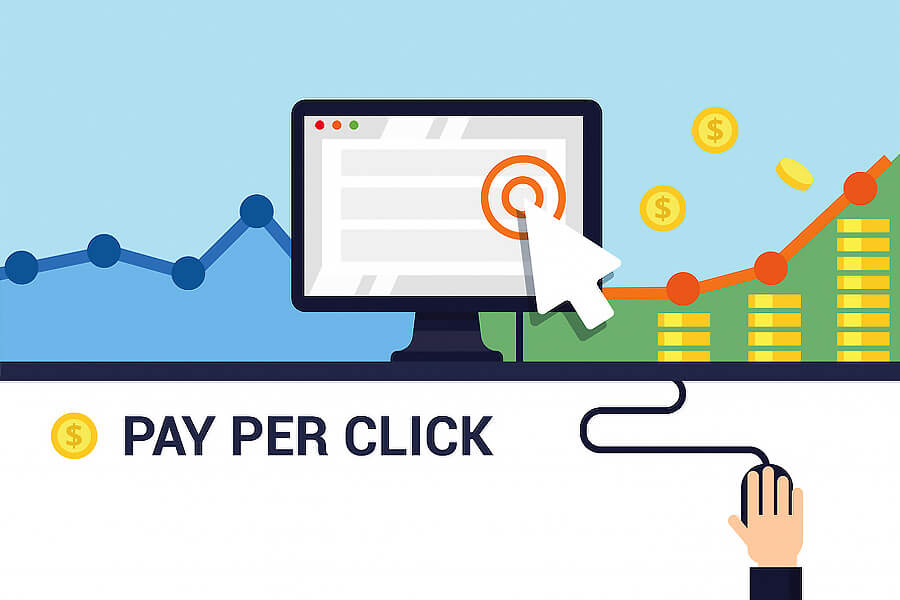The Incredibly Practical Reasons to Opt for Pay-Per-Click Advertising
You might have heard the term PPC thrown around a lot during Digital Marketing conferences and meetings. If you fall under the category of people who are not tech savvy, you might be wondering what the term means. Worry no more for we got you covered. In this era of digital marketing, PPC can help you grow in the aspect of next-level engagement with your audience. In fact as a digital marketing enthusiast one must know PPC well and understand how to use it efficiently for brand promotion and audience engagement.
For starters, Pay-Per-Click (PPC) is a digital marketing channel. It is a bit complicated but absolutely essential for increase in traffic and conversion metrics Let’s focus on the end result instead of the technicalities. As the name suggests, pay per click involves investing money. If you think about it, the process of customer acquisition costs money. But there is good news.
The good news is every dime you spend on PPC is accountable and the impact can be directly measured. As a matter of fact, you can create a budget you are comfortable with and generate traffic suitable for the budget. Then you can modify your strategy based on the results.
Search engine advertising is one of the most popular forms of PPC. It allows advertisers to bid for ad placement in a search engine’s sponsored links when someone searches on a keyword that is related to their business offering.
Every time your ad is clicked, sending a visitor to our website, we have to pay the search engine a small fee. When PPC is working correctly, the cost is trivial, because the visit is worth more than what you pay for it.
A lot goes into building a winning PPC campaign: from researching and selecting the right keywords, to organizing those keywords into well-organized campaigns and ad groups, to setting up PPC landing pages that are optimized for conversions. Search engines reward advertisers who can create relevant, intelligently targeted pay-per-click campaigns by charging them less for ad clicks.
If your ads and landing pages are useful and satisfying to users, Google charges you less per click, leading to higher profits for your business. So if you want to start using PPC, it’s important to learn how to do it right.
Google Ads operates on a pay-per-click model, in which users bid on keywords and pay for each click on their advertisements. Every time a search is initiated, Google digs into the pool of Ads advertisers and chooses a set of winners to appear in the valuable ad space on its search results page. The “winners” are chosen based on a combination of factors, including the quality and relevance of their keywords and ad campaigns, as well as the size of their keyword bids.
As mentioned earlier, one of the most important advantages of pay-per-click advertising is it’s cost effectiveness. Since you only pay when a user actually reaches your website, it can be a great deal of value of money. You can choose to spend a lot or very little based on your campaign budget. The choice is yours. Isn’t it wonderful?



